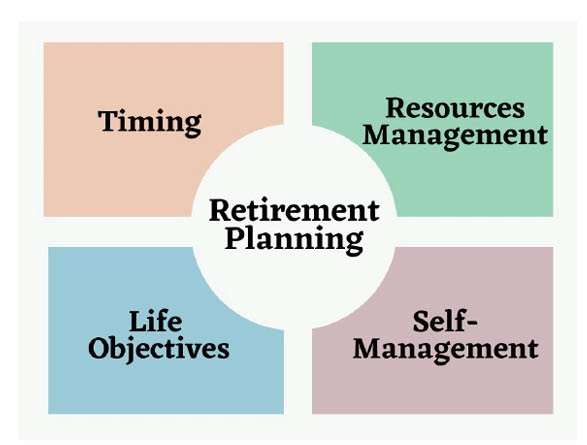Last week, we discussed some of the investment options that are available to persons in phase I. But before we begin to discuss the investment options for those in phase two (from years ‘11’ to ‘30’), I think it is appropriate we bring out some investment factors that should be considered regardless of the phase a person might be in. These factors will fall into three broad categories viz; environmental, asset, and personal.
Environmental factors are those to do with the largely uncontrollable external social, economic, and political environment. Specifically, the investment environment refers to all the varied assets available, investment vehicles and processes, market structure, regulatory framework, etc. that facilitate or hinder transactions. These factors affect the overall interest of investors and influence their risk-return expectations for each asset under consideration.
Environmental factors such as the socio-economic demographic of a market is a key determinant of what we may be able to do as investors. For instance, the economic power or weakness of the middle class will shape its spending and investment capacity. This will open up or constrict the opportunities for businesses that serve the middle class such as restaurants and real estate companies engaged in providing residential property. Whilst it is possible that environmental factors can be reshaped, it is usually difficult and can consume substantial resources. It is usually easier to simply leverage existing opportunities whilst keeping a keen eye on emerging trends.
Asset factors: Different assets have different elasticities to different local and global socio-economic factors. Some asset factors to be of interest will include the following:
- Afenifere raises alarm over rising kidnappings in South West
- Rivers budget passed at family meeting, says pro-Wike speaker
- Ease of acquisition and disposal: The supply and demand dynamics of/for different assets over time determine the ease of their acquisition and disposal. Generally speaking, the easier an asset can be acquired and disposed of, the more attractive it should be as long as it offers at least one of the twin benefits of capital appreciation or profitability.
- Liquidity: Assets that are easy to be disposed of do offer liquidity advantages. Whilst the shares of a publicly quoted company doing very well can easily be sold, the remote farmland you bought in your village away from the main road may be tricky to dispose of. Liquidity is a major investment factor to be considered for many valid personal and business reasons.
- Transaction costs: Different investments come with different transaction costs. It is important to factor in transaction costs whenever we are considering making an investment. Transaction costs might include commissions, charges, taxes, etc. Linked to transaction costs are the ease or difficulty in processing and documentation of acquisition and disposal of assets. The shares of a publicly quoted company doing well can easily be sold whilst you should exercise due caution in acquiring land.
- Return on Investment, RoI, is important in deciding which asset to invest in. Generally speaking, the higher the likely RoI the more attractive the investment should be. But other factors, such as lower risks, liquidity, the timeframe we are willing to tie down our capital, etc. should also be considered in totality. When we have limited investible funds and want to invest in different assets, we may need to make wise compromises.
- Portfolio considerations: Investment in various assets can be for the purpose of building, strengthening/diversifying, or growing our overall portfolio. Different assets have different characteristics, and these should be considered towards achieving any or a composition of the portfolio objectives mentioned. For instance, Treasury Bills are considered reasonably risk-free but come with ‘low’ returns whilst equities, assuming you have done your homework well, should offer higher returns but they come with comparatively higher risks.
Personal factors: Investments are very personal. Hence, an investor needs to be clear of at least a few personal factors such as:
- Purpose: The starting point is always a clear understanding of why we want to make an investment. This may be influenced by the stage of career we may be in. For instance, at different phases, we may be interested in profitability and liquidity while at others we may be after long-term capital appreciation. Why we want to invest will influence what assets we should be looking at.
- Personal resources: The personal resources a person has will influence what investment they can make. We may sometimes, however, also have legitimate access and the right to use resources that we do not own. No matter the composition of the resources at our disposal though, we owe it to ourselves and others to be congruent and make wise investment decisions.
- Risk inclination: Different people have different risk affinities. Consequently, different persons will be attracted to different investible assets. As an investor, you will need to understand your personal risk preferences. As a thumb rule, I advise that we should always understand and be comfortable with the risk profiles of the assets we may decide to invest in.
- Time horizon available before retirement: For the purposes of investing for retirement, the time horizon a person has to their retirement will influence what choices they may have. Some assets are best benefitted from if they are held long term while it may be wise to move in and out of some assets in the short run. Again, it is about what we can do and what we are comfortable doing.
Regardless of which phase we may be in, we will need to be clear about the purpose of each investment and also consider relevant investment factors before deciding on what to invest, how much to invest and for how long.

 Join Daily Trust WhatsApp Community For Quick Access To News and Happenings Around You.
Join Daily Trust WhatsApp Community For Quick Access To News and Happenings Around You.